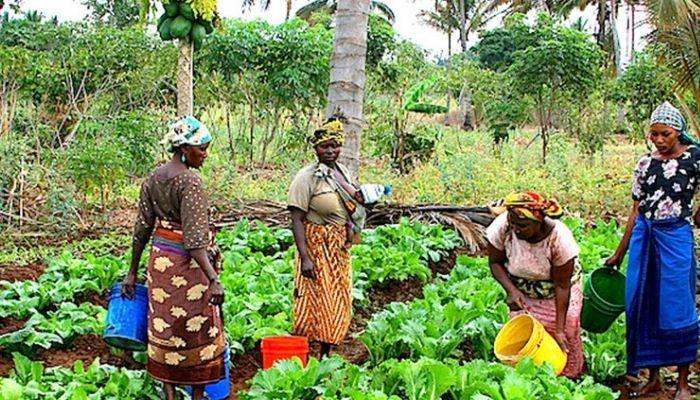Girls for Climate Action Initiative, an environmental non-governmental organisation (NGO), has trained women farmers in Gbessa community, Abuja, on climate-smart agriculture and waste recycling to promote food security and sustainable farming.
The Executive Director of the organisation, Mrs. Grace Eche-Okeke, made this known during the training on Wednesday. She said the initiative aims to empower rural women farmers with knowledge and skills to improve productivity and income.
The training focused on practical techniques, including the use of bags and recyclable cans for crop cultivation. Eche-Okeke noted that these practices improve soil health, boost yields, and promote sustainable waste management.
“Most farmers globally are women, yet they often lack access to resources needed to increase their yields or improve their livelihoods,” she said. “This training equips them to use recyclable materials for cultivation, which requires little or no finance. It is a practical solution to enhancing food security and boosting household incomes.”
Eche-Okeke also highlighted the second phase of the programme, which will focus on local production of organic manure and fertilizers. She said this initiative would improve soil fertility, lower production costs, and increase harvests.
The executive director acknowledged challenges affecting local farming, including recurring herder-farmer conflicts. She said the organisation is engaging community leaders to foster dialogue and restore peace.
“We have engaged with chiefs and other leaders who are ready to convene a dialogue between farmers and herders. By fostering peace, these women can maximise the benefits of their farming activities,” Eche-Okeke said.
Mr. Ifeoluwa Bello, co-founder of Zero Shara Limited, a partner in the training, stressed the importance of human empowerment, particularly for rural women.
“At Zero Shara Limited, we empower communities through sustainable practices such as waste recycling. This partnership promotes financial literacy and inclusion, enabling women to reinvest earnings into productive ventures like seedlings and organic inputs,” Bello said.
He added that the programme aligns with the United Nations Sustainable Development Goals, particularly zero hunger, no poverty, and quality education, and that the initiative would be scaled up to reach more women across other rural communities in the Federal Capital Territory (FCT).
One of the beneficiaries, Mrs. Rabi Nuhu, expressed gratitude for the initiative, noting the value of the skills acquired. However, she called for government and security interventions to address the conflicts between farmers and herders.
The Etsu Gbessa, Musa Yeto, commended the organisation for supporting women in the community and encouraged continued advocacy to bridge communication gaps between grassroots women and government authorities. He also proposed a stakeholders’ town hall meeting to foster dialogue and resolve the conflicts between farmers and cattle herders.


